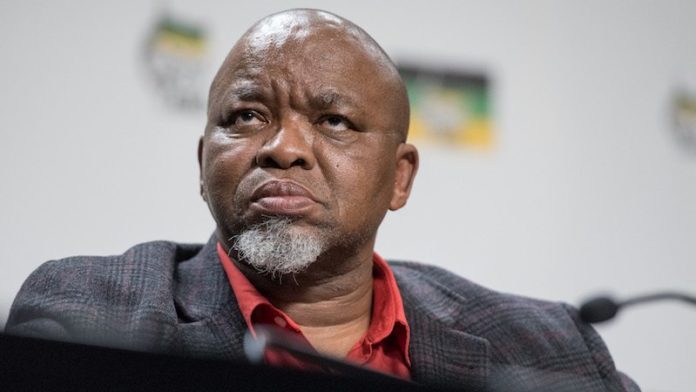
I think the decision by Minister of Mineral Resources Gwede Mantashe to do an “about face” over the High Court ruling on “once empowered, always empowered” and appeal the judgement is hugely negative.
It reveals that “the leopard cannot change its spots” because it shows once more that a critical part of the ANC’s ideological make-up is an underlying mistrust and dislike of the country’s mining industry.
I expressed exactly this opinion of the ANC in a column published on April 11 after Mantashe’s speech to the Joburg Platinum Industry Seminar at which he declared the platinum sector was NOT in a crisis.
My opinion is not shared by the Chamber of Mines which is trying to smooth things over as best it can stating that it, “respects the right of the Minister and the Department of Mineral Resources (DMR) to lodge an application to appeal the judgement.
“The Chamber is continuing to engage in good faith. That has not changed since the application to appeal, as we currently understand its intentions.”
So maybe – as Chamber executives have maintained a few times before over the years – there are positive developments going on the background that we outsiders don’t know about. If that’s the case I do hope they are right about it this time around.
I take no satisfaction over my April 11 viewpoint being confirmed so swiftly. It’s actually depressing because I am reminded of the performance of a previous Mines Minister when we had the great mining nationalisation debate back in 2011/2012.
You may remember the ANC was thinking about nationalising the mines – then it decided it would probably not nationalise the mines – but we had to have the debate anyway irrespective of the damage being done to investor sentiment.
At one point I asked then mines minister Susan Shabangu why were we having this debate in the first place.
I pointed to the example of Zambia which destroyed its copper mining industry through nationalisation. The answer – in a nutshell – was that those were the Zambians. We are South Africans. We can do it differently.
My conclusion at the time was that the ANC seemed hell-bent on “re-inventing the wheel” and would not take common sense advice that contradicted its economic ideological doctrines despite the obvious lessons of history. I have not changed that opinion.
I think the ANC “has it in” for the country’s established mining industry because the ANC believes it benefited hugely from apartheid and must be punished for that.
The fact that the mining industry just might go down the tubes during this retribution process – taking with it hundreds of thousands of jobs and the country’s main sources of foreign exchange – does not seem to register with the politicians.
This is what the DMR had to say about its decision to appeal the High Court ruling. “The judgement has dire implications for the economic transformation imperatives of the Constitution, the mining sector and South Africa at large. It further has the potential of extending regulatory and policy uncertainty and sterilisation of our mineral resources, with grave economic growth and unemployment implications.”
They just don’t get it. The SA mining industry is already in crisis – “with grave economic growth and unemployment implications” – precisely because of the regulatory and policy uncertainty created by the ANC over the past decade.
So why did Mantashe change his mind? According to DMR spokesperson Ayanda Shezi it was because, “the Minister has applied his mind to the judgement and its implications and it is his considered view that it should be appealed.”
Alternative viewpoint is that Mantashe came under pressure from other ANC heavyweights. Peter Leon – co-chair of the Africa Group at legal firm Herbert Smith Freehills – tells me that the decision was “unexpected and I am not sure if it was Mantashe’s decision.”
If that’s what happened then the Chamber is negotiating with a politician who does not hold the power it clearly believes he does.
So what happens next? Leon reckons that, “ it does not exclude further negotiations. They may be able to ‘park it’ and continue with the negotiations. “
Mantashe said on April 10 he expected negotiations on a new Mining Charter to be resolved by the end of May and Shezi tells me the DMR still expects to work “within the timeframe previously indicated”
The Chamber is more cautious stating, “the minister has set an ambitious deadline. The Chamber remains committed to helping to finalise the process in a reasonable timeframe.”
But this thing could drag on for up to two years if it goes all the way to the Constitutional Court – which it may well do – when what is needed is a swift resolution so that a new, sane, Mining Charter can be brought into force.
One radical suggestion is that the Chamber should bring firebrand mining lawyer Hulme Scholes on board as chief negotiator because he would best be able to deal with Mantashe and his sidekick – former DMR director general Sandile Nogxina.
What a marvellous prospect but it’s just not going to happen. The Chamber has already sided with the DMR in opposing Scholes’ High Court application to have the Mining Charter scrapped in its entirety.











